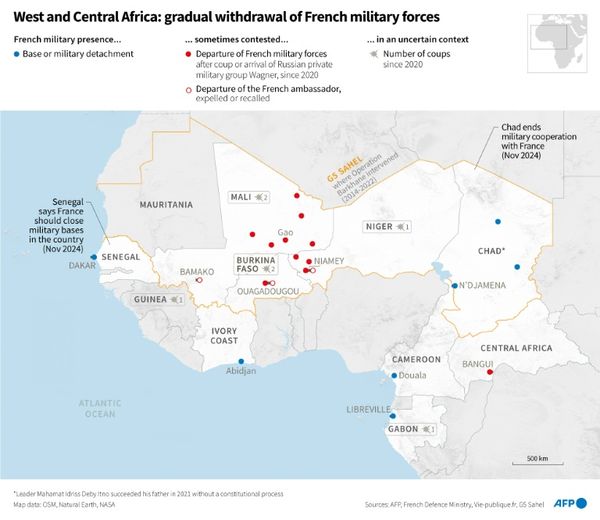
Hasakeh (Syria) (AFP) - The death toll from fighting between US-backed Kurdish forces and Islamic State group jihadists who attacked a prison in northeast Syria four days ago reached 136 Sunday, a war monitor said.
More than 100 insurgents late Thursday attacked the Kurdish-run Ghwayran jail in Hasakeh city to free fellow jihadists, in IS' most significant military operation since its self-declared caliphate was defeated in Syria nearly three years ago.
Intense fighting both inside and outside the jail saw the militants free detainees and seize stored weapons, according to the Britain-based Syrian Observatory for Human Rights, in what experts see as a bold IS attempt to regroup.
And while the ferocity and expanse of the battle diminished late Sunday, concerns mounted about the fate of hundreds of children inside the prison, where the jihadists were holding out.
"At least 84 IS members and 45 Kurdish fighters, including internal security forces, prison guards and counter-terrorism forces, have been killed" since the start of the attack, the Observatory said.
Seven civilians have also died in the fighting in the city, the largest in northeastern Syria and controlled by a semi-autonomous Kurdish administration, it added.
Helped by US-led coalition air strikes, the largely Kurdish Syrian Democratic Forces said Sunday they had sealed off the area around the jail and that "IS fighters located within the gates of the prison can no longer escape".
Minors 'human shields'
The coalition said that "the SDF have contained the threat," while the Observatory reported that the intensity of fighting had died down.
But the jihadists were holed up in a prison dormitory housing hundreds of detained children with suspected links to IS, the SDF said in a later statement.
Inmates under the age of 18 were being used as "human shields," to stymie advances against the jihadists, it said, adding that it would hold "the terrorists accountable if the children are hurt."
UNICEF, the UN's agency for children, on Sunday called for the protection of 850 minors detained in Ghwayran.
"As fighting continues, the risk for children increases, including to be harmed or forcibly recruited," it said.
The battles triggered a civilian exodus from areas around the prison.Kurdish authorities say thousands of people have fled in the harsh winter cold.
IS fighters entered "homes...killing people," said a civilian in his thirties who fled on foot on Sunday.
"It was a miracle that we made it out," he told AFP, carrying an infant wrapped in a wool blanket.
Hamsha Sweidan, 80, a resident who had been trapped near the jail, said civilians were left without bread or water as the battle raged.
"We have been dying of hunger and of thirst," she said, adding that she had no idea where to go.
IS has carried out regular attacks against Kurdish and Syrian government targets in the country since the rump of its once-sprawling proto-state was overrun in March 2019.
Most of their guerrilla attacks have been against military targets and oil installations in remote areas, but the Hasakeh prison break could mark a new phase in their resurgence, in a country rife with insurgent groups after more than a decade of civil war.
Not 'significant threat'
An IS video released by the group's propaganda arm Amaq purported to show IS fighters carrying the group's black flag as they launched the attack on Ghwayran and surrounded what appears to be a group of prison guards.
A second video released Saturday showed nearly 25 men whom IS said it had abducted as part of the attack, including some dressed in military fatigues.
AFP could not independently verify the authenticity of the footage.
The US-led coalition said it was "confident" the attempted prison break does not amount to a "significant threat" going forwards, since so many IS fighters were killed.
The Observatory said that Kurdish forces had managed to recapture more than 100 IS detainees who had tried to escape, but that many more were still on the run. Their exact numbers remained unclear.
The Kurdish authorities have long warned they do not have the capacity to hold, let alone put on trial, the thousands of IS fighters captured in years of operations.
According to Kurdish authorities, more than 50 nationalities are represented in a number of Kurdish-run prisons, where over 12,000 IS suspects are held.







